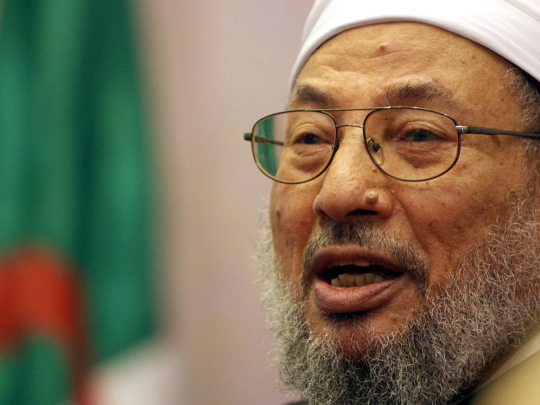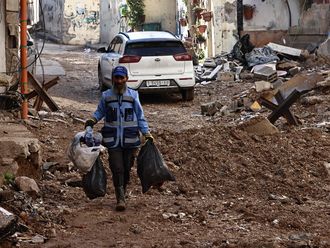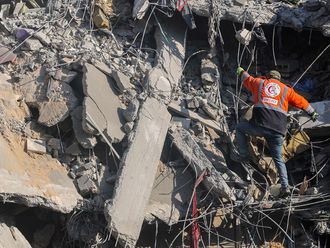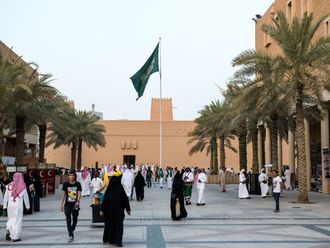
DOHA: Muslim Brotherhood-linked cleric Yousuf Al Qaradawi has issued a religious decree prohibiting Egyptians from voting in a referendum to be held next week by the military-installed interim government.
Islamist supporters of deposed president Mohammad Mursi had already called for a boycott of the January 14-15 vote on a new constitution drawn up by the interim authorities since his July overthrow by the army.
But the Egyptian-born Al Qaradawi, who wields huge influence through his regular appearances on Al Jazeera television from his base in exile in Qatar, said that participation would go against Islam because it would mean colluding with a “sin”.
“Participation in the constitutional referendum — and contributing in any way to strengthening this coup authority, or giving it legitimacy, or prolonging its existence and strengthening its presence — is cooperating in a sin and an act religiously forbidden,” the cleric said in the fatwa issued late on Tuesday.
Al Qaradawi, who has been based in Qatar since he was stripped of his citizenship decades ago, had already issued a fatwa calling on Egyptians to restore Mursi to his “legitimate post”.
He briefly returned to his homeland in February 2011, days after the overthrow of veteran strongman Hosni Mubarak, and delivered a sermon in Cairo’s Tahrir Square, epicentre of the uprising.
Al Qaradawi’s fatwa came as Mursi was back in court in Cairo on Wednesday for a new hearing in his trial on charges of inciting the killings of opposition activists in clashes outside the presidential palace in December 2012.
The cleric is himself wanted by Egypt’s interim authorities and faces trial in absentia.
Qatar maintained close ties with Egypt during Mursi’s turbulent single year in power and relations nose-dived after his overthrow.
Qatar has given refuge to a number of Brotherhood leaders who fled the bloody crackdown that followed Mursi’s ouster and saw thousands of Islamists detained.
Egypt has called on Qatar to respect a 1998 Arab counter-terrorism treaty and hand over Al Qaradawi and other wanted Islamists.












